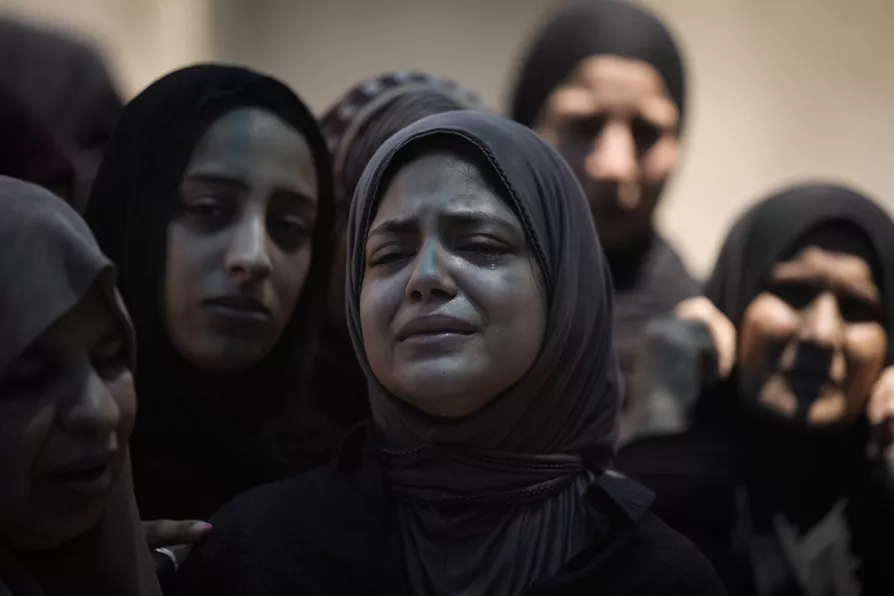As tens of thousands return to the streets for the first national Palestine march of 2026, this movement refuses to be sidelined or silenced, says PETER LEARY

 Mourners attend the funeral of Muhammad Sarhan,15, in the West Bank town of Tulkarem, July 2, 2024
Mourners attend the funeral of Muhammad Sarhan,15, in the West Bank town of Tulkarem, July 2, 2024
WITH large and small wars, and the threat of violence, common features within and between nation states, it’s widely believed the threat of even greater violence, or armed peacekeepers, are the best ways to protect civilians.
US-based researcher and consultant Ellen Furnari has a different take. As the co-editor of the recently published edited collection Unarmed Civilian Protection: A New Paradigm for Protection and Human Security, Furnani tells Ian Sinclair what Unarmed Civilian Protection/Accompaniment (UCP/A) is, how it works and why it has some advantages over armed peacekeeping.
Ian Sinclair: Can you set out the main types of UCP/A that have been carried out?
Ellen Furnari: UCP/A is the protection of civilians by other civilians in situations of imminent, ongoing, or recent violent conflict without the use or threat of violence.
Human beings have been using unarmed, nonviolent strategies to protect themselves and others since time immemorial. So UCP/A is nothing new. While efforts to protect people have often been focused on the use or threat of violence, in reality nonviolence is endemic and effective.
The oldest and most traditional forms of UCP/A occur in local communities when people do things like give each other early warnings when armed actors are on the way, or women accompany each other to gather wood, rather than going out alone, to decrease the incidence of rape and other attacks.
More recently, beginning in the 1980s organisations such as Peace Brigades International (PBI) and Community Peacemaker Teams (CPT) began working in areas of active conflict where it was perceived that internationals could provide protection specifically through their international status, often called protective accompaniment.
The presence of internationals accompanying human rights defenders and other activists who received death threats due to their work, dramatically decreased the risk of harm for these activists, supporting their continued work.

Israel’s monopolisation of ‘aid’ to slaughter Palestinians means there is no other option: direct international intervention now, says CLAUDIA WEBBE

ANSELM ELDERGILL draws attention to a legal case on Tuesday in which a human rights group is challenging the government’s decision to allow the sale of weapons used against Palestinians











